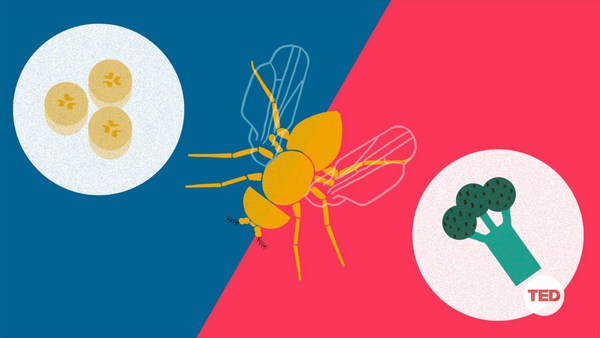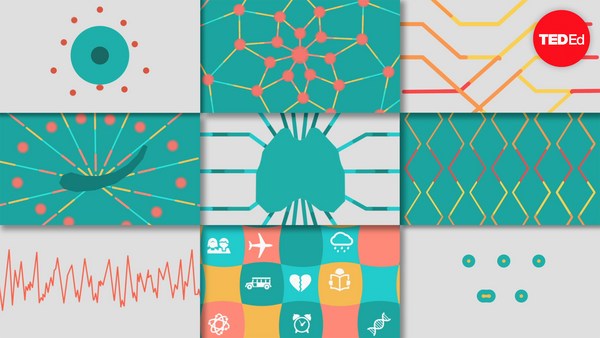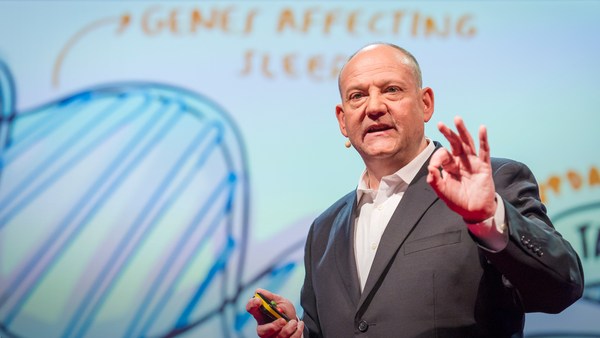Greg Gage: Who wouldn't love acing a geography exam, remembering all the locations of the countries on a map or avoiding embarrassing situations of suddenly forgetting the person's name standing right in front of you. It turns out that memory, like other muscles in the body, can be strengthened and enhanced. But instead of practicing with flash cards, there may be an interesting way that we can hack our memory while we sleep.
(Music)
Why do we sleep? This has been a question asked since the early days of civilization. And while we may not know the exact answer, there are a number of really good theories about why we need it. Sleep is when the brain transfers short-term memories experienced throughout the day into long-term memories. This process is called memory consolidation, and it's the memory consolidation theory that has scientists wondering if we can enhance certain memories over others. There was a paper recently in the journal "Science" by Ken Paller and his colleagues at Northwestern that seemed to show that this may be true, and that piqued our curiosity. Joud has been working on a DIY version of this task to see if we can improve memories through the use of sound in sleep. So Joud, how do you test if we can improve our memories with sleep?
Joud Mar’i: We need a human subject.
[Step 1: Play a game] We have a memory game that we have on an iPad, and then we make our subject play this game and remember the images and where they appear on the screen.
GG: So this is like a memory game you used to play as a child, which picture was where. And we tie each picture with a sound that represents it.
JM: So, if you can see a picture of a car, for example, and you would hear the car engine.
(Car engine starting)
GG: Just before you go to sleep we're going to test you. We're going to see how well you remember where the pictures are. Every time you see the picture, you're going to hear the sound. And now comes the experiment. You're going to go take a nap. [Step 2: Take a nap] And while you're sleeping, we're going to be recording your EEG.
JM: And then we wait for them to go into what's called the slow-wave sleep, which is the deepest phase of your sleep where it's really hard for you to wake up.
GG: OK, pause. So, here's some information on sleep. There are four stages: we have lighter stages of sleep and REM, but what we're interested in is called slow-wave sleep. And it gets its name from the electrical signals called Delta waves that we record from the brain. This is the part of sleep where scientists believe that memory consolidation can happen. In this deep period of sleep, we're going to do something that you don't know we're going to do.
JM: Here's where the tricky part comes, and we start playing our cues.
(Car engine starting)
GG: Do you play all the cues?
JM: No. We only want to play half of them to see if there's a difference.
GG: So your hypothesis is the one that they were listening to while they're sleeping they're going to do better at.
JM: Yes, exactly.
GG: When you wake back up and play the game again, do you do better or worse than before a nap? What we found is that if we played you a cue during your sleep, for example, a car -- You would remember the position of that car when you woke back up again. But if we didn't play you the cue during the sleep, for example, a guitar, you'd be less likely to remember that guitar when you woke up. The memories that were cued they remembered better than the ones they weren't, even though they don't remember hearing those sounds?
JM: Yes, we ask them.
GG: We know they're sleeping, they can't hear it, they wake up, they do better on those than the ones you didn't play.
GG: That's amazing. JM: It's like magic.
GG: Joud ran this experiment on 12 people and the results were significant. It's not that you remember things better; it's that you forget them less. I was a huge skeptic when I first heard that you could do better at a memory test just by playing sounds during sleep. But we replicated these experiments. The facts and memories we collect throughout the day are very fragile, and they are easily lost and forgotten. But by reactivating them during sleep, even without us being aware, it seems like we could make them more stable and less prone to forgetting. That's pretty incredible. Our brains are still active even when we're not. So if you're like me and a bit forgetful, perhaps a solution is a pair of headphones and a soft couch.





